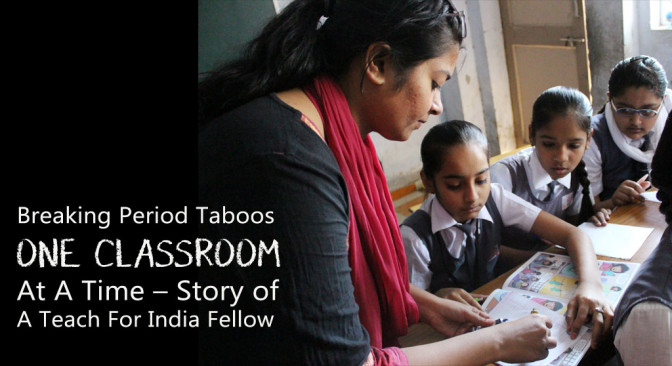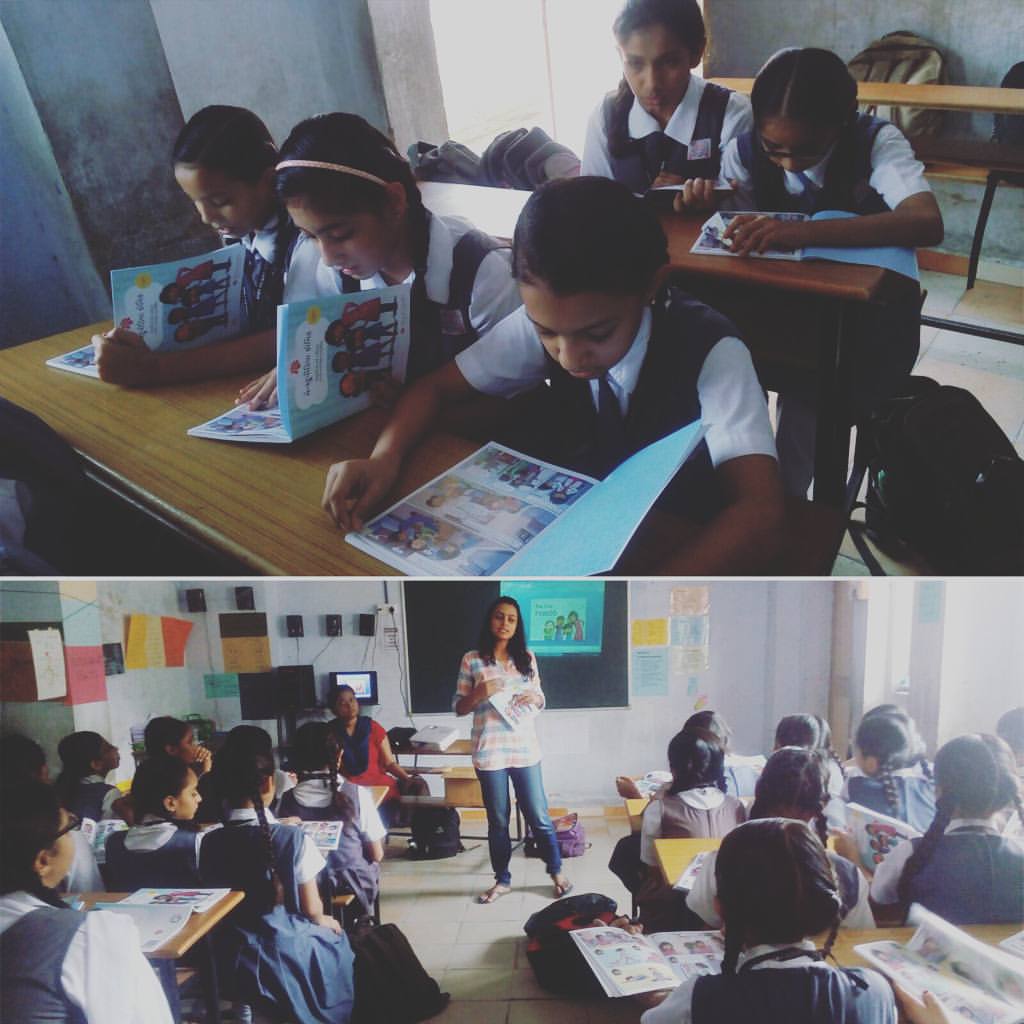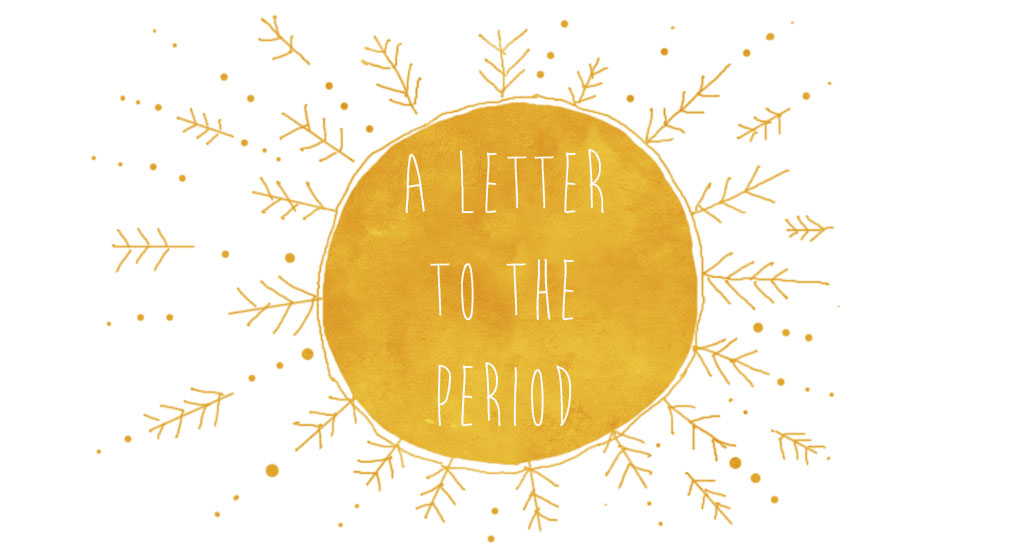(Above image is that of the author with her students)
I am chumming.
I knew the night before, when the cramping and pain began, that it was coming. Actually, I knew even sooner, because I mark the dates in my mind and on my wall calendar. Still, there’s no way to prepare; once the actual blood comes, I can hardly sit up. But I have a meeting in an hour. I am not coughing. I do not have a fever, and I am not sick. So, I sit up and dress slowly.
Three hours later, I am no longer listening to what is being said in the meeting. I can only feel my back, which screams at me to get up and leave before I require help. I excuse myself. Later,[inlinetweet prefix=”” tweeter=”” suffix=”null”] I can’t remember how I managed to walk to an auto or sit through the ride.[/inlinetweet]
Fortunately for me, the pain is always gone after the first day – and sometimes the memory of it, too. The next day, when a student tells me her period just began, I say alright – so? She says she’s in pain and wants to go home. I have to stop myself from telling her that’s ridiculous; you don’t go home just because of periods. Instead, I let her go.
The students watch her walk out. When she is gone, I ask them what periods are. The four remaining girls ask the two boys to cover their ears and move away. Their mothers say that it is dirty blood, they tell me in whispers, but they don’t really know; they haven’t yet had theirs. [inlinetweet prefix=”null” tweeter=”null” suffix=”null”]They just know that it is something not to be spoken about, especially not around boys.[/inlinetweet]
My headmaster did not flinch when I asked him, later, if Menstrupedia could do a presentation at our school, though he sent word later that I would be solely responsible if parents complained. He was also hesitant to distribute the book; I can only guess that he found the copy I left with him too graphic. But we moved forward with a talk.
On the day that Menstrupedia’s Aditi comes to my school, the teachers usher all girls, classes 5 to 8, into one classroom and make an announcement: no one should speak of what is about to be shared, particularly not to any fathers and brothers.
I grind my teeth, but say nothing. [inlinetweet prefix=”null” tweeter=”null” suffix=”null”]The information is the important thing, I remind myself.[/inlinetweet] I’m already chafing because the 9-year-old girls from my other class are being left out, too; the other teachers all feel they’re too young. Information given positively, honestly and for the purpose of learning is always well received, I argue silently.
Then Aditi starts — Aditi, who is as blatant as I am diplomatic. I feel a grin spreading over my face, and leave her to say what I cannot. The students giggle at first, but the discussions get more and more meaningful as they start to ask questions.
How will I know when I will get it for the first time?
So, it isn’t dirty blood?
What should I do if it starts when I am at school?
What should I do about the pain?
My mother says this and my nani says that – is it true?
Later, the other teachers stop me from giving the books to my younger students, again claiming they are too young. I refrain from pointing out that Nature does not think so; some of them were menstruating already. This time, patience pays off; the next day, the teachers change their minds, giving the book to the younger class and even taking copies for their daughters.
I feel rewarded. [inlinetweet prefix=”null” tweeter=”null” suffix=”null”]This is how change takes place, I think: slowly, with light cramps and debilitating pain.[/inlinetweet] Always, through gritted teeth.
After a few months, I talk to my soon-to-be 10-year-old girls about menstruation. They listen to me with half attention since they had already read Menstrupedia’s book. Yes, yes, move on. Three holes, urethra, vagina and anus, all right, all right. The mothers I speak to seem relieved. Now you’ve taken care of explaining this, too, they tell me. My girls in Class 8 talk to me about it freely now. They show me their science textbook and turn the pages until we come to the chapter on reproduction with the diagrams of the penis, testicles, vagina and Fallopian tubes. [inlinetweet prefix=”null” tweeter=”null” suffix=”null”]Their science teacher has refused to teach them this chapter – would I teach them, please?[/inlinetweet]
Perhaps there’s a way to prepare, after all.
This article was originally published in Swaddle.
 Author – Rohini Manyam Seshasayee
Author – Rohini Manyam Seshasayee
Rohini is a Teach for India fellow. She is presently reading ‘Open’ by Andre Agassi.










